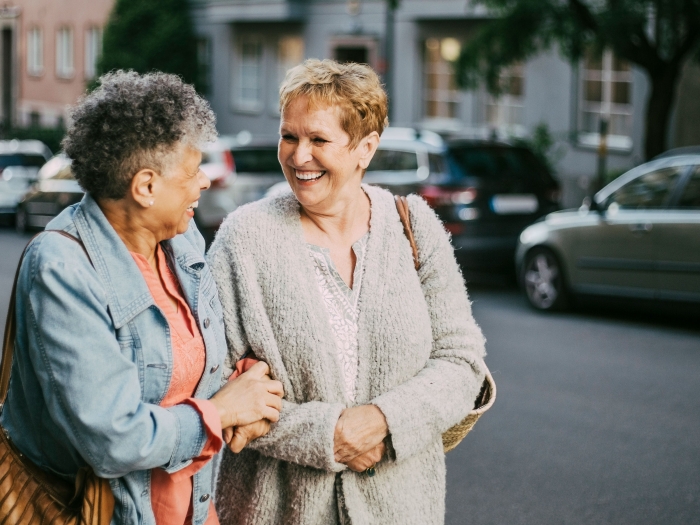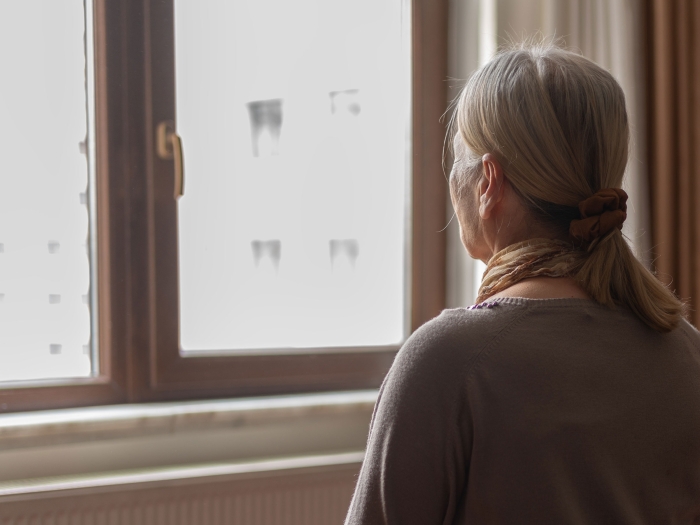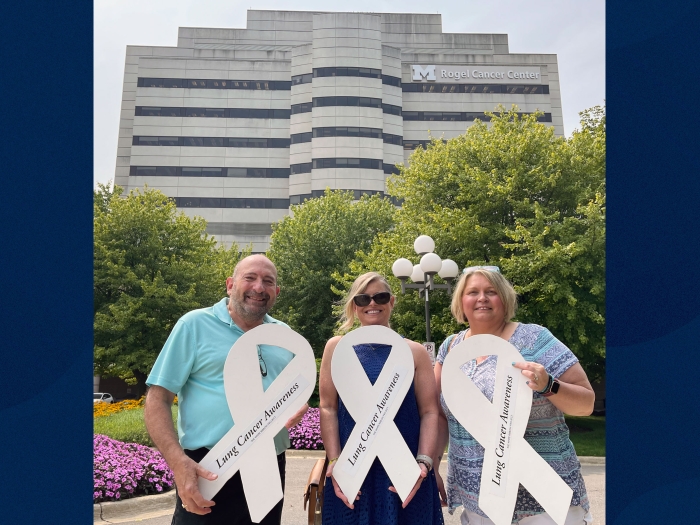As cold weather approaches, a gastrointestinal psychologist shares best practices for navigating life during the COVID-19 pandemic.
11:16 AM
Author |

Editor's note: Information on the COVID-19 crisis is constantly changing. For the latest numbers and updates, keep checking the CDC's website. For the most up-to-date information from Michigan Medicine, visit the hospital's Coronavirus (COVID-19) webpage.
Face coverings, social distancing and restructured holidays. As the pandemic continues to unravel, many of us have finally adjusted to our new normal. But with winter on its way, our current reality may soon change once again.
Megan Riehl, PsyD, is the clinical director of the gastrointestinal behavioral health program at Michigan Medicine, as well as a gastrointestinal psychologist. She recently spoke to Michigan Health about how you can best prepare for the upcoming seasonal change as you continue to keep safe from COVID-19.
As temperatures begin to drop, how can you best prepare yourself to head outdoors?
This year, at least for Michiganders, we have been fortunate enough to have some really beautiful fall weather to enjoy. The trees are colorful, making it the perfect setting for a leisurely walk alone or with members of our households and/or pods. But we all know the drill and what to expect soon: frigid temperatures, gusts of wind and snow.
While many of us may think that it's time to enjoy the weather while we still have it, the pandemic changes everything. It's important for us to readjust our mindsets about quality time outdoors. With the correct protective attire, our bodies – and our minds – can significantly benefit from being outside in the winter.
You can prepare now by digging out your warmest winter clothing and assessing whether or not you need to make new purchases to keep yourself and your family members warm outdoors. Remember, outdoor time may be one of the safest ways for us to connect socially as we continue to navigate the COVID-19 pandemic.
The emotional benefits of fresh air and sunshine, coupled with the physical activity of walking, hiking or cruising in a wheelchair, is a win-win situation.
What types of activities do you recommend during the winter?
Given that the holidays will likely be a very different experience for most of us, with limited (or no) travel to see extended family members and friends, it's best to start preparing for virtual gatherings with your loved ones.
You can make these virtual get-togethers especially fun by playing an online game, planning a recipe to cook together, sharing a meal time, watching a show or movie together, opening gifts at the same time or simply connecting on an emotional level.
Another tip is to plan an outdoor excursion with members of your household and/or pod. By taking up a new outdoor hobby like sledding, hiking or exploring new parks, you're opening yourself up to new experiences and memories.
There are also ample opportunities to bundle up, pack a lunch and set an example for your children and/or loved ones: Even though things might be different this holiday season, there's still plenty of time to engage with each other in meaningful and enjoyable ways.
Do you have any mental health tips for individuals dealing with the stress of winter?
Mindfulness is the art of being present in the moment without judgement for how you are feeling. It's always important to remember that whatever emotions you may be feeling are OK. This year has been tough enough, and it will continue to hold many unique challenges for us all. When you feel stressed:
- Stop and take a moment to acknowledge your feelings. It's OK to say to yourself, "I am feeling stressed."
- Take a deep breath. First, breathe in through your nose and as you exhale through your mouth, let your shoulders drop down away from your ears.
- Take another deep breath and scan your body for tension. Then, try and actively release any tension from your muscles.
- After a few more breaths, refocus your attention on the next task that is within your realm of control. Now, you'll be ready to move on with your day.
How can people cope with loneliness this year?
Reach out to others if you are struggling. Send a friend a message and set up a plan to talk via phone or video chat. We sometimes forget that chances are, if you are feeling lonely, your loved ones are likely feeling the same way and missing you.
It's smart to create a routine for regular check-ins with friends and family. Sometimes, something as simple as starting a group text chat can really help people feel connected. Remember to never be afraid of letting others know how you are feeling.
With seasonal stress, food-related problems may arise. How can individuals manage these issues?
The holidays can lead to more snacking, larger meals and overindulging in things like desserts and alcohol. By setting intentions with yourself about your food and drink intake, you can better monitor your portions.
In addition, meal planning can help you pay attention to what and when you are eating. Ultimately, this practice has the power to help you cut down on overeating or indulging in foods due to convenience.
Lastly, I always tell my patients to be aware of their emotions. For some, increased levels of stress, anxiety, sadness or loneliness can lead to emotional eating. Always consider reaching out to a mental health professional if you are concerned about your moods or the general state of your mental health. You're never alone.

Explore a variety of health care news & stories by visiting the Health Lab home page for more articles.

Department of Communication at Michigan Medicine
Want top health & research news weekly? Sign up for Health Lab’s newsletters today!





